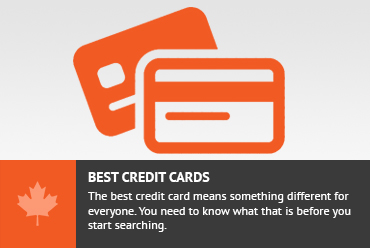When we think about improving our credit scores, many people don’t consider credit utilization a main factor. However, that’s very far from the truth. Credit utilization is one of the most significant factors determining your credit score.
Credit utilization is not a hard concept to understand despite the scary-sounding terminology. In plain words, credit utilization is the amount of credit you currently utilize from your general credit.
How Much Credit Utilization Should We Have?
In Canada, there are slightly different variations of how much credit utilization a person should have. Firstly, Transunion says that your credit utilization should be at most 35%. However, another credit agency says your credit utilization should be at most 30%. It’s also important to note that the Financial Consumer Agency of Canada advises people to have credit utilization lower than 35%.
Having credit but not using it goes a long way toward improving your credit score. This is because it usually means you’re using your credit sparingly and being financially responsible. However, it doesn’t mean you need to get multiple credit cards and not use them.
That will lower your credit score since you’ll be racking up hard inquiries for your credit report. Instead, what you want to do is to use your credit responsibly. However, what if you already have a high credit utilization rate? What should I do then? Here are some ways to solve that issue.
Pay Your Balance Regularly
Well, this should be obvious enough for a lot of people. If you want to lower your credit utilization rate, you need to pay up your debts as soon as possible, or at least reduce them before your credit card issuer sends a report to credit agencies. If you don’t know your credit card issuer’s billing cycle, you can ask them directly.
Also, if you hold multiple credit cards, it’s better to spread your payments among your credit cards instead of paying off just one. This is because some scoring models calculate the utilization of all your credit cards at once when calculating your credit score.
Don’t Throw Away Your Cards
You may think that throwing away your credit cards is the solution to your problem, but it can do more harm than good. As mentioned earlier, having no activity on your card is not necessarily better than utilizing your cards. You should keep using it to build a positive payment history for your credit report.
This way, you can add more points to your credit score. Also, if your card is inactive, your credit card issuer will be forced to close it down. This could spell some trouble as by closing an account; you’ll also be closing down the credit you have on that card, which means your credit utilization will be increased further.
Consolidate Your Debt
One way to consolidate your debt is to take a personal loan and use it to pay off your credit card debts. Debt consolidation loans can help you merge all the payment dates into one, helping you manage and pay off your monthly repayments. Credit cards are a form of revolving credit where it’s up to you how much you want to pay each month.
However, the debt might seem never-ending if you keep paying up with a minimum payment. But if you’re using a personal loan, you’ll be in a fixed-term repayment, which can help you pay off your debt slowly. Not only that but taking out easy loans like a personal loan will diversify your credit mix.
Don’t Take Out More Credit Cards
You might think you can lower your credit utilization by opening new credit cards, but as we mentioned earlier, this might do more harm than good. It might increase your overall credit, but it will also give you multiple hard inquiries. This can undo the good of opening credit cards since opening new ones in a short time can significantly lower your credit score.
Ask for a Higher Credit Limit
You can talk to your credit card issuer and request a higher credit limit. If you get approved for a higher credit limit, your overall credit will be increased, directly lowering your credit utilization. It’s a simple trick but a very effective one. However, it’s important to note that most issuers have requirements you must meet before you get approved for an increase.
Final Words
Credit utilization is one of the most important aspects of a credit score, which means that if it’s bad, it will lower your credit score by a significant number of points. That said, it might be in your best interest to fix your high credit utilization as soon as possible. It’s a small thing, but it greatly impacts your credit score if you neglect it long enough. With an improved credit utilization rate, your credit score will be up in no time.










